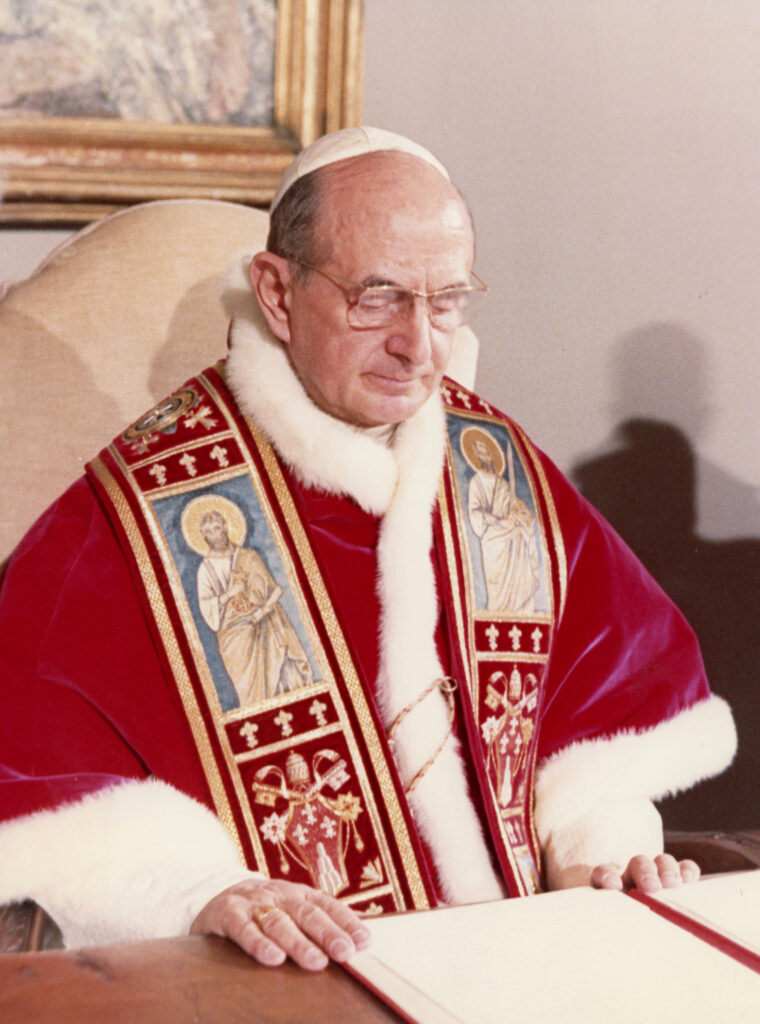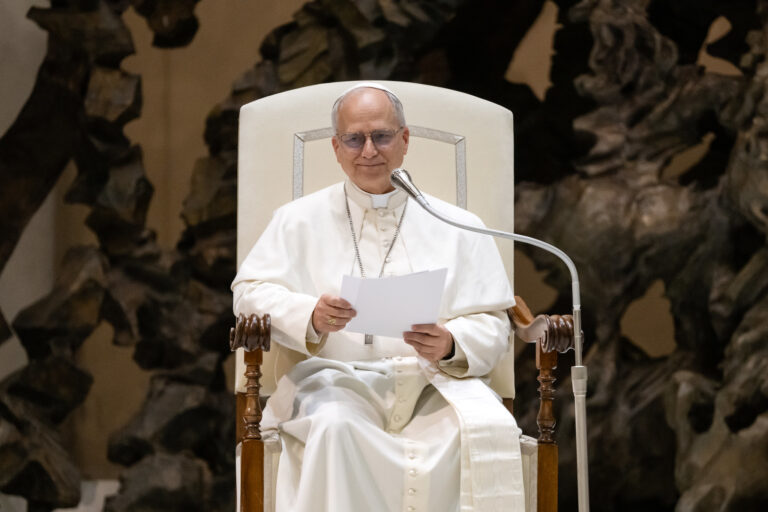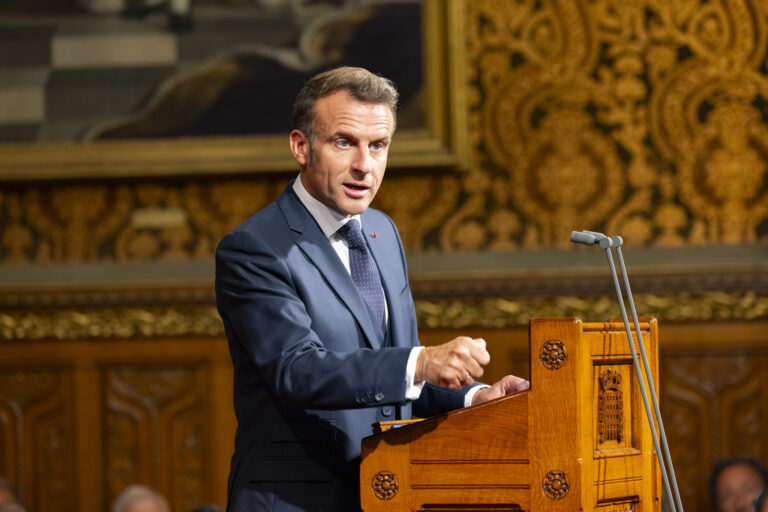Fifty-six years ago this week, Pope Paul VI released an encyclical that shocked the world. Not because it said something new, but because it not only refused to conform, but openly rejected the spirit of the age.
Change was sweeping across the world in the form of the sexual revolution, enabled by the birth control pill and accompanying loud demands to modernize everything, including the Church’s age-old teachings on sex and marriage. When the Pope released Humanae Vitae, many expected the new encyclical to go along with the times.
Instead, the Pope gave the world a challenge—but also a gift.
In Humanae Vitae—On Human Life—Pope Paul VI reaffirmed what the Church had always taught: that love, sex, and life are intrinsically connected, and that separating them would come with serious consequences. It wasn’t a finger-wagging lecture. It was rather a father’s tender but firm reminder that we are not the authors of life, but stewards of something sacred.
But let’s rewind for a moment.
Pope Paul VI didn’t make this decision lightly. In fact, he inherited a commission started by his predecessor, Pope John XXIII, to study birth control and married life in the context of the modern world. The commission included scientists, theologians, doctors, bishops, and even married couples. The hope was to understand the challenges modern families faced and help the Church respond thoughtfully. Many on the commission wanted the Church to embrace artificial contraception, and thus redefine the relationship between men and women in marriage.
The Pope rejected such recommendations, choosing instead to reaffirm perennial truths dating back to the founding of the Catholic Church. He saw that the demands that many in his flock were asking for weren’t just about biology, sex, or convenience—they touched on something much deeper. So what he delivered in H.V. was not a simple “no” on artificial contraception, but a profound moral reflection on the spirituality of sexuality, human love, and marriage.
At the heart of Humanae Vitae is a simple but profound truth: the love between a husband and wife is both unitive and procreative. These two aspects of marital love are intimately bound together. When we try to separate them, we say “yes” to pleasure and the unitive aspect, but “no” to the natural fruit of that union: life. This reduction and severing of the marital act distorts the meaning of love and defiles the beautiful nature of the act itself.
That doesn’t mean couples must have as many children as physically possible (though we do need bigger families). It means we are not free to manipulate or block Life at our will. The crux of the issue is the difference between working with the natural rhythms of the body, as through Natural Family Planning, or trying to control fertility outside of God’s design. The first honors God’s order; the second overrides and defiles it.
To say that the message of Humanae Vitae wasn’t well received in 1968 is an understatement. Even within the Church, there were many who rejected or ignored it. But a half-century down the road, we can see that we, as a faith community, have paid a severe price for doing so. Pope Paul VI made some eerily accurate predictions about what would happen if we embraced contraception, and each and every one has sadly come true.
He warned that we would see:
- A rise in marital infidelity and broken families
- A general decline in sexual morality
- Women being treated more like objects than persons
- Governments and institutions using contraception for population control
Sound familiar?
We don’t have to imagine the fallout from ignoring Humanae Vitae’s warnings—because we’re living it. Widespread pornography, hookup culture, fatherlessness, collapsing birthrates, abortion on demand, and even coercive sterilization programs in parts of the world all testify to its truths. We live in a world where sex is everywhere, but true love feels harder to find than ever.
But Humanae Vitae wasn’t just a warning. It was also a call to something better, and a later pope was to elaborate exactly what that was.
Shortly after his election, Pope John Paul II, who had helped shape Humanae Vitae behind the scenes, began giving a series of talks now known as Theology of the Body (TOB). These teachings built on the foundation of Humanae Vitae, summing up the encyclical in a way the general public could easily digest while not losing any of the theological meat and potatoes. TOB was a series of papal audiences showing how our bodies speak a “language” meant to communicate human love in the divine plan. Real love, he said, means a total gift of oneself to one’s spouse, and that includes our fertility.
Contraception, JPII said, turns that gift into a negotiation. It says, “I give you everything… except for this part of me.” It might seem convenient at the moment, but it breaks the fullness of the intimacy we were created for.
He also pointed out something our culture still doesn’t understand: natural family planning (NFP) isn’t “Catholic birth control.” It’s a lifestyle that fosters communication, mutual respect, and deeper trust between spouses. All while working with the woman’s body, not against it.
So here’s the question that haunts:
“What if we had listened?”
What if we had embraced Humanae Vitae as a roadmap instead of a roadblock? What if we had trusted that God’s design for our bodies and relationships actually leads to joy and to a wholeness that comes from being integrated in all aspects of our created selves?
What if the world had supported women, instead of telling them to shut down their fertility in order to be equal? What if men were encouraged to protect and honor, not to take and leave? What if children were always welcomed as blessings to be celebrated instead of burdens to be avoided?
The good news? It’s not too late.
Yes, we’ve lost a lot. But a quiet revolution is underway, and we should all be doing everything we can to encourage it. More and more couples are discovering the freedom of NFP and fertility awareness compared to hormonal birth control. Young Catholics are waking up to the beauty of chastity—chastity not as repression, but as a radical act of love and liberation. Families are choosing faithfulness and fruitfulness in a culture that’s forgotten what either of those words means.
Humanae Vitae still stands. And more than ever, it still speaks to us across the decades.
It speaks of love that doesn’t control but cooperates. Of bodies that aren’t broken or defective, but beautifully designed. Of a world that can be healed, if we’re willing to listen.
Happy Birthday, Humanae Vitae.
Saint Paul VI, pray for us!







